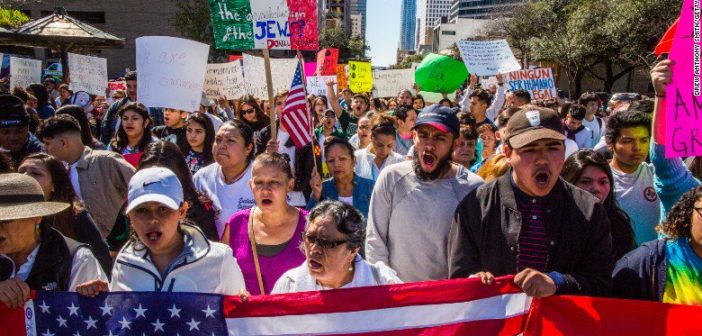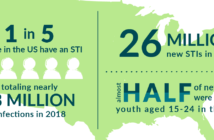On the campaign trail, then presidential candidate and now President of the United States Donald Trump has called for a ban on Muslims entering the nation. Trump cites that such individuals are potential risks to national security and that everything needs to be done to preserve American lives.
On Jan. 27, Trump put that promise into action by signing off on his fifth executive order that held very specific and various implications for immigrants, asylum seekers, and the federal government at large, sparking riots and protests in airports nationwide for many days.
The first provision of Trump’s order called for a reduction in the number of refugees allowed into the United States per year from 85,000 to 50,000. The order also prioritized people fleeing nations that persecute people of a religious or ethnic minority group. Furthermore, the executive order suspended the U.S. Refugee Admissions Program (USRAP) altogether for 120 days. The most controversial provisions entail the indefinite halt to specifically Syrian refugee access into the country as well as access from seven so-called “Muslim-majority countries.” These nations include Iran, Iraq, Libya, Somalia, Sudan, Syria, and Yemen. Trump states that the Department of Homeland Security will work with people on a case-by-case basis to determine if specific persons can be made an exception to this executive order.
Saint Leo itself took a stand on the executive order and President Lennox himself has decided to join our university up with the rest of the Association of Catholic Colleges and Universities (ACCU) in opposition to the order. In an email sent out to all students, faculty, and staff, Lennox stated “Saint Leo recognizes the moral obligation to assist immigrants, particularly those who are fleeing persecution.” He later also stated he respects the American political system and encourages all of us to “hold true to our core values as Americans.” ACCU has since published an official statement regarding the order and what kind of support is available for the international students affected.
Also, critics of the executive order argue that it violates both the first and fifth amendments to the Constitution and thus it is unconstitutional.
“The executive order, of course, does not say in express terms that it is favoring Christians and disfavoring Muslims. But Trump, the signatory, had said so explicitly,” said David D. Cole of Georgetown University Law Center in an interview with CNN.
Cole has litigated several First Amendment Supreme Court cases.
Cole is arguing that Trump’s order is in violation of the Establishment Clause of the First Amendment, which bars the government from disfavoring one particular religion. Other critics state that the provision excludes other Muslim nations, such as Saudi Arabia and Egypt, nations that have been heavily involved in U.S. foreign policy in the Middle East and often seen as adversaries to American interests.
Saint Leo University Political Science Professor Francis Orlando pointed out the possibility of Trump making it very difficult for Republican members of Congress to be re-elected come midterm elections. Moderate districts that voted for Trump as well as Republican figures to Congress may feel compelled to swing their vote towards Democrats as a result of continued extremely right wing and questionable policies, although it is highly speculative. Such a move by said moderate districts would put Trump in a harder situation for the rest of his first term if Democrats held more power in the legislature.
“Still, polls show that there’s a lot of support for the order, even though it’s on hold right now,” said Orlando.
Orlando may be referring to national opinion polls taken by various news agencies and interest groups.
Following the executive order, as previously stated, riots and protests broke out in airports nationwide and nearly 50 separate lawsuits were made against Trump and/or the federal government.
On Feb. 3, a Washington State federal court judge challenged the executive order directly by ordering an injunction, or what is also called a Temporary Restraining Order (TRO), that blocks major parts of the order from being enforced nationwide. Specifically, the TRO blocked the enforcement of restricting access of those previously stated seven Muslim-majority countries, meaning refugees and immigrants from those countries are once again able to normally enter the nation by established legal means. Additionally, the TRO blocked the provision that placed limits on accepting refugees, thus Syrian refugees are once again allowed to enter the country legally in addition to immigrants from all countries previously blocked by the executive order.
Immediately following the ruling by that Washington federal court, the Trump administration appealed the ruling to the U.S. Court of Appeals of the Ninth Circuit for a reversal, and on Feb. 9, the court ruled in favor of the Washington judge and Trump’s appeal was denied.
With reports from various news sources claiming from Feb. 10, Trump is reported to be in the process of rewriting the executive order in order to bypass the courts altogether and have it be lawful. According to the Washington Post and NBC news, this process is already taking place in the White House. Orlando agreed that Trump is making the right call by re-writing the order instead of taking it to the Supreme Court.
“I think it’s more likely that he re-craft the executive order in order to make it sail through (rather) than subject it to the Supreme Court,” said Orlando.
Orlando would also comment on the nature of Trump’s cabinet and executive staff, saying, “If he had a more professional staff, he’d be able to head off a lot of these issues […] and get most of the policies he wants passed. Instead, the amateur nature of his staff is distracting people from his agenda.”
This begs the question of whether or not Trump’s amateur staff will have an effect on future policy decisions made by the president. Also, one might question if this controversial executive order will be able to escape the courts simply by proper writing from Trump’s team.
Nevertheless, according to multiple sources such as CNBC and Politico, Trump will reveal the rewritten Executive Order sometime this week.






1 Comment
Regarding David Cole’s stance on first amendment rights, those rights pertain to US citizens, not immigrants and refugees fleeing Muslim countries. How exactly can immigrants be covered by an amendment from within a country which they do not have citizenship to? This same stance against our enemies was taken in World War II with the internment of Japanese-Americans, granted the basis for their internment was ethnicity, but they were Americans. Something like the latter strikes me as much more egregious and inconsistent with constitutional rights than the current executive order. Additionally, the tactics of war utilized by ISIS and comparable terror organizations has been to infiltrate on a minimal basis to establish minuscule acts of terror where we live. Unfortunately, the best way to circumvent this tactic is to preclude these terrorists from entering our country. I agree that the lives of immigrants and refugees fleeing persecution do matter, but so do those who are citizens of this country. What would your solution be?